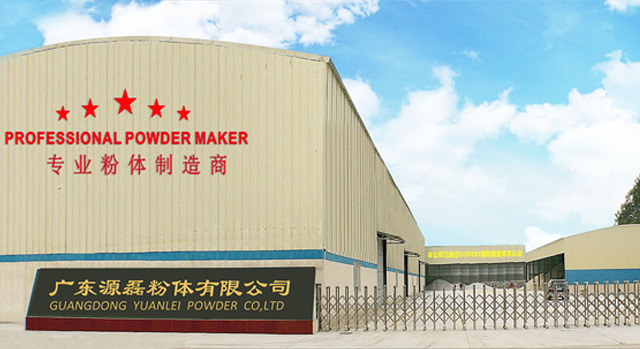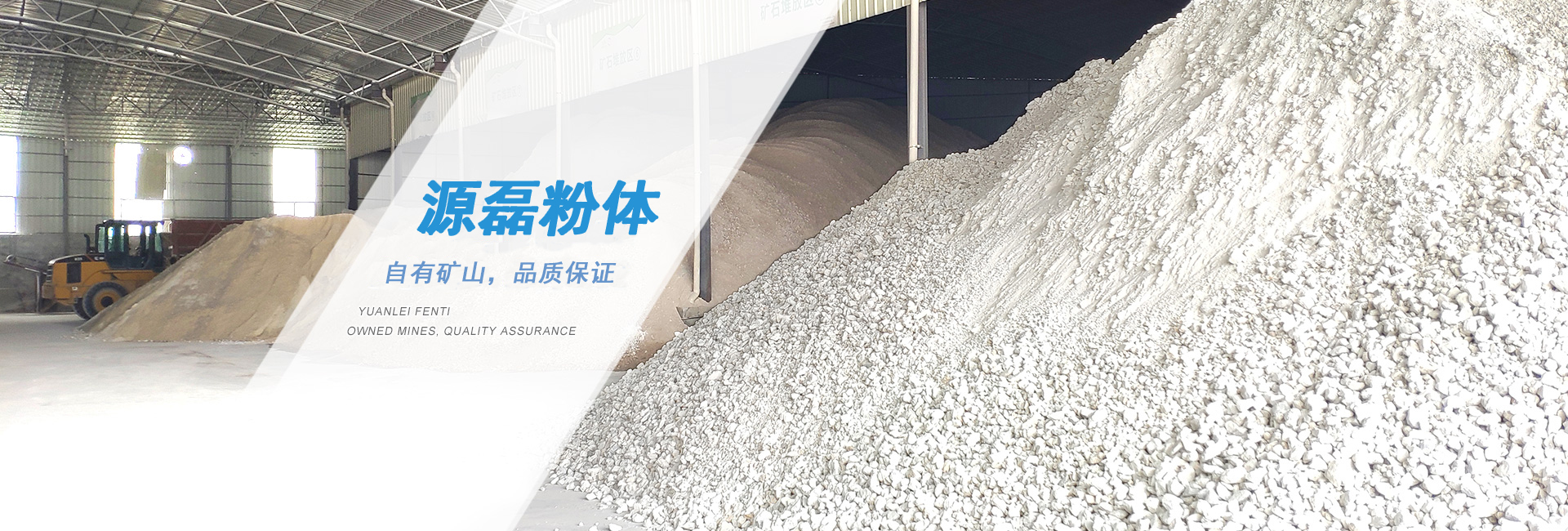Tel:+86-0757-22910350
Add: 2 1701 Shunde Science and Technology Innovation Center, Ronggui Town, Shunde District, Foshan City, Guangdong Province
Production Base: Guangdong Hengmeiyuan Nanotechnology Co., Ltd.
Add: Derun Logistics Industrial Park, Hetang, Jiangmen City, Guangdong Province
CONTACT US
©2019 Guangdong yuanlei powder co., LTD.,
15years of production and sales, experience in professional production and sales of non-metallic mineral powder materials
CUSTOMIZATION PROCESS
Guangdong Yuanlei Powder Co. Ltd. is mainly focused on mining, processing, and trading of barite resources since established in 2005.
We professionally mine, manufacture, and market Natural barium sulfatete(Barite), Precipitated barium sulphate, Titanium dioxide and other products based on our self-owned mine resources. Our products are widely used in drilling, painting, coating, plastic, rubber, paper making,ceramic, ink, chemical fiber, medical and cosmetic industries.
Our production base is in Jiangmen, Guangzhou Province. It is specialized in the technology development and processing barite powder. Three production lines have been completed, including one Raymond mill, one Ring-roller mill and one Ultra-micro pulverizer. Different types of grinding equipment allow us to produce barite powder from 200mesh to 15000mesh (size can be up to 0.5 u m). Annual barite production capacity can reach 100,000 metric tons. Meanwhile, a full set of advanced testing instruments, such as laser particle analyzers, moisture meter, whiteness meter and so on, in the production base is our quality assurance.
Our company is a leading barite, precipitated barium sulphate, titanium dioxide exporter in China. Over the years, we have established long-term stable business relationship with our home and abroad customers. Our products meet not only the domestic needs, but also are exported to many countries and districts, including but not limited to Europe, South America, North America, South-east Asia, Africa, etc.

Different applications and specifications of washed kaolin and calcined kaolin
Its pure kaolin is white, delicate, soft soil, with good plasticity and fire resistance and other physical and chemical properties. Its mineral composition is mainly composed of kaolinite, Eloite, hydromica, illite, montmorillonite, quartz, feldspar and other minerals.
Kaolin is divided into washed kaolin and calcined kaolin.
Difference between washed kaolin and calcined kaolin:
Firstly, the calcined kaolin is calcined, and the crystal type and original soil have changed. However, washing kaolin is only a physical treatment, which will not change the properties of the original soil.
Secondly, the difference in whiteness is relatively large, and the whiteness of kaolin will increase after light burning, while washing will not significantly increase the whiteness.
Third, different uses. Depending on the calcination temperature, kaolin can be used as a papermaking additive and refractory aggregate. The washed kaolin is generally used as papermaking filler.
At present, calcined kaolin mainly refers to hard kaolin (coal measures kaolin), the original soil is not adhesive, can not be directly used as raw materials for papermaking or refractory materials, need to be calcined after application; The original soil of washed kaolin has adhesive property and can be directly used as refractory binder or papermaking filler.
As far as paper fillers are concerned, the whiteness of calcined kaolin is much better, and the cost is relatively high.
Calcination will also lead to the increase of kaolin particle size, although the specific surface area is reduced, the adsorption is reduced, but the surface energy is reduced, so that the dispersion of kaolin is improved, and the structure is loose because of the non-normalization, which can also improve the dispersion. Calcined and dehydroxylated kaolin is usually refined by grinding or chemical surface modification as a reinforcing filler for rubber, plastics, etc., to partially replace white smoke.
Product use:
1. Washed kaolin has become a necessary mineral raw material for paper making, ceramics, chemicals, glue, adhesives, national defense and other industries;
Ceramic industry is the earliest application of kaolin, a large amount of industry. The general dosage is 20% ~ 30% of the formula. The role of kaolin in ceramics is to introduce Al2O3, which is conducive to the generation of mullite, improve its chemical stability and sintering strength, and decompose kaolin into mullite in the firing, forming the main frame of the strength of the billet, which can prevent the deformation of the product, make the firing temperature wider, and also make the billet have a certain whiteness. At the same time, kaolin has a certain plasticity, adhesion, suspension and bonding ability, giving porcelain mud, porcelain glaze good formability, so that ceramic mud is conducive to turning and grouting, easy to form.
2. Calcined kaolin is widely used in ceramics, rubber, plastics, coatings, artificial leather, self-cement, refractory materials, cosmetics and so on. With the further improvement of mineral processing technology, kaolin will be widely used. The coal geological system preparation unit can proceed from the actual situation and base on the kaolin resources and market demand in the coal measure strata. Kaolin is a common non-metallic mineral in nature, which was used in the past to produce ceramics, refractory materials and a small amount of additives in plastics and rubber.
Calcined kaolin has the characteristics of high whiteness, strong hiding power, good fluidity, high oil absorption and good suspension in coatings. The properties of the coating and coating film obtained by adding this fine calcined kaolin to the latex paint will make us feel that kaolin is not only a common filler, it can become a functional filler to improve the quality of the coating.
Calcined kaolin in rubber and special cable reinforcing agent, industrial plastic functional filler, ink filler.
Calcined kaolin can be used in paper coating to replace part of the expensive titanium dioxide.

Yuan Lei's Little Knowledge | Ten Major Uses of Barium Sulfate
Barium sulfate is mainly made from barite and processed through processes such as ore dressing, washing, and crushing. The hardness of barium sulfate is 3-3.5 (Mohs), with a specific gravity of 4.3-4.7. It has the characteristics of high specific gravity, low hardness, and brittleness. Barite is almost insoluble in water, ethanol, and acid, but soluble in hot concentrated sulfuric acid. With the development of some high-performance barium sulfate products, the application field of barium sulfate is constantly expanding.
At present, barium sulfate is widely used and the industries with high demand include the following:
1. The application of barium sulfate in paint is superior to most other filling powders, with characteristics such as low cohesion, low light dispersibility, and fine particles. It is particularly suitable for pigment topcoats, varnish, spray paint, etc., and has chemical and weather resistance. It is inert, insoluble in organic mediators such as water, acid, and alkali, and its excellent glossiness and particle fineness enable the topcoat to be maintained during long-term exposure. Barium sulfate is recommended for topcoats to increase surface hardness and color stability.
Barium sulfate has high filling properties and can be applied to all coating series, such as primers, thick paste coatings, and other types. Its low specific surface area, particle size distribution, and easy flowability make barium sulfate have low wear during processing. Barium sulfate is recommended for automatic primer surface layers and even maintains good uniformity and smoothness during high filling.
2. Barium sulfate is used in latex paint and is known as "acid resistant" latex paint. Even when exposed, it has acid resistance. The dispersibility, optical rotation retention, and flowability of barium sulfate can enhance its chemical properties.
3. Barium sulfate used in powder coatings can improve their gloss, fluidity, filling properties, and compatibility with various pigments.
4. In the application of pigments, barium sulfate is used as a spacer for titanium dioxide and pigments in plastics, which can reduce the amount of pigment added and save about 10% of cost. Light reflection can maintain the complete color of the pigment.
5. The titanium dioxide or pigment particles in coatings are usually not completely dispersed, and the particles will aggregate together, causing a decrease in scattering rate and covering power, making these titanium dioxide agglomerates a great waste. The average particle size of MICROBARI submicron barium sulfate is around 1.3um, which is approximately equal to titanium dioxide particles (with an average particle size of 0.3) μ About twice the size of m, the addition of MICROBARI submicron barium sulfate can separate the agglomerated titanium dioxide particles. Each submicron barium sulfate particle has sufficient surface energy and can adsorb 4-10 titanium dioxide particles around it, effectively achieving spatial segregation and maximizing the scattering rate of each titanium dioxide particle. Applying MICROBARI submicron barium sulfate as a physical pigment to high-end products such as thin spray powder coatings, electrophoretic coatings, and high gloss coatings can give your products a competitive advantage in technology and price.
6. Barium sulfate, as a filler in silicone rubber and mixed rubber, can increase the hardness of silicone rubber and reduce its elasticity.
7. In the application of printing ink, barium sulfate's low wear resistance, high glossiness, color stability, low cohesion, and combined with its easy flowability make it suitable for high-quality printing ink.
8. Barium sulfate is used in the production of paper coatings, and its introduction can increase its glossiness and fluidity, such as art paper and medium white transparent colored paper. The titanium dioxide part can be replaced by double barium sulfate without losing its glossiness.
9. Barium sulfate is particularly suitable for elastomers, as it does not contain any heavy metal pollution or rubber gas, making it particularly suitable for food and medicine, and can provide its stability and anti-aging properties.
10. In the application of thermoplastic materials, the thermal c











